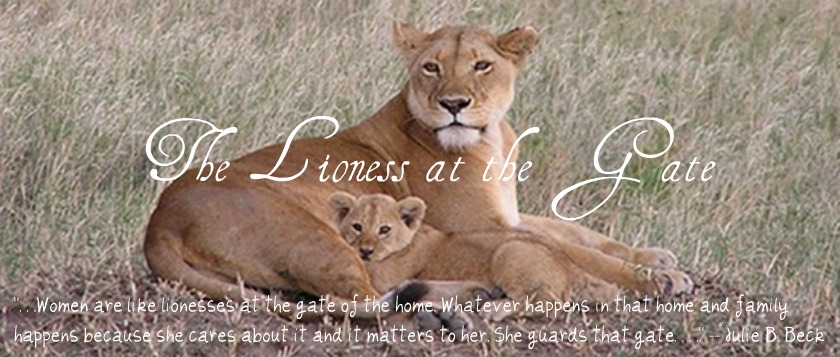Hestia/Vesta
Sharon said:
Now just as a complete side-note, the Romans had the goddess Hestia or Vesta. She’s a very interesting goddess. She’s a virgin goddess. She doesn’t have family, but she is in charge of all family relationships. And her symbol is the fire on the hearth and it symbolizes life and she is guarding that life. And she’s also the patron goddess of civilization. She’s the mother of Rome. And so her role is to connect all family relationships into a family unity and a local unity and a community and a civilization. So her work is all about weaving things together. And I think that that’s a nice symbolic representation of the role of women.She continues:
In our scriptures, although we often talk about this scripture in terms of the temple . . ., this is Doctrine and Covenants 88 verse 119. . . It says: “Organize yourselves; prepare every needful thing; and establish a house…” I don’t think it’s talking about a physical house or even the temple. I think it’s talking about a generation of life. It’s talking about a house in the same way that the Lord promised Jeroboam or David a house. It says: “…establish a house, even a house of prayer, a house of fasting, a house of faith, a house of learning, a house of glory, a house of order…” It’s a house of God. And that’s what I think women have stewardship, to establish that house. They have a particular, gender-based role to establish that house. And men have a corresponding gender-based role to establish that house or that generation of life.I've started at least one blog post exploring men's duties as organizers of church/es and women as organizers of home and family. I didn't get to develop it very far and never posted it, but perhaps there is some truth to it. Women, by biology and duty and connection to children organize the home and pass on traditions. Yes, men do it too, but I'm not sure that bond to children, home, and family is as strong. Maybe I've mentioned it before, but one time I found a list of who organized churches throughout time in the world, and nearly all the examples were men. I think that list (wherever it was) showed only one or two women as ever organizing churches.
Asherah
So our Sunday School classes get a bit away from doctrine sometimes (ok, often), and on Sunday we were talking about how some scholars believe that Heavenly Father's wife's name was Asherah. However, as it goes, her nature of true Goddess got perverted and she became the female counterpart to the false-god Baal. The teacher mentioned something about her being associated with wisdom, though. And that's about all I know about that, but it would be interesting to research.
Isis
I should probably ask my friend Mary if I can share this, but she posted the idea on Facebook, so I give her all the credit for bringing it up. Apparently, Egyptians had a strong belief that women were essential to male progression and power.
Mary wrote:
"For example- the throne that this king (Osiris) is sitting on is Queen Isis's name or glyph. Meaning he derives his authority to rule as pharo, from her. But it get's better, the glyph of "the throne" with the little square in it, is a reference to the fact that her body creates life or "houses" life, so it's a drawing of a house inside the throne. . . . In the story Osiris (king and "father of all") is killed by the serpent, but Isis (queen and "mother of all living") saves the day by giving birth to his son (the kings son) So that Osiris is king of the underworld, and his son, Horus, is prince in the mortal sphere. Meaning a woman's super power is to create life. It's not a virtue that the western world values, since we measure women on our ability to be as good as a man. . . . So "Ma'at" is the (female) persona of wisdom justice and truth- all that keeps the earth in order. In this picture she accompanies the man into the presence of the Divine—Isis and Osiris. Her presence signifies that he is worthy to enter heaven. That was my question. Is she a symbol of righteousness like an endorsement? Or is she a real role/person? Michael Rhodes says both and pointed to similar rendering of the scene for many coffins, where the dead man was painted holding his wife's hand as though she was "ma'at."What strikes me is that the man is only worthy WITH the woman. I think of abuse cases where the husband is in no way worthy of the wife he abuses. At the gates of Heaven will he be counted among the faithful with the stains of abuse on his heart? My mortal view says no: he needed to live a life in harmony and unison with his wife, not of dominance.
D&C 131:
2 And in order to obtain the highest [degree of Glory], a man must enter into this order of the priesthood [meaning the new and everlasting covenant of marriage];
3 And if he does not, he cannot obtain it.
It's also interesting that the idea of wisdom is also associated with ma'at as with Asherah.
Heavenly Mother
Another friend, JT, and I can't find her original post, recently shared that while attending BYU's Education Week that she felt very much taught about Heavenly Mother, although the speakers weren't directly speaking of Her, it was more of a Spiritual thing. I can't wait to hear JT's impressions and what spurred them on when/if she feels to share them.
As Eliza R. Snow said, "truth is reason; truth eternal tells me I've a mother there" and I believe we will come to know her better in time.
